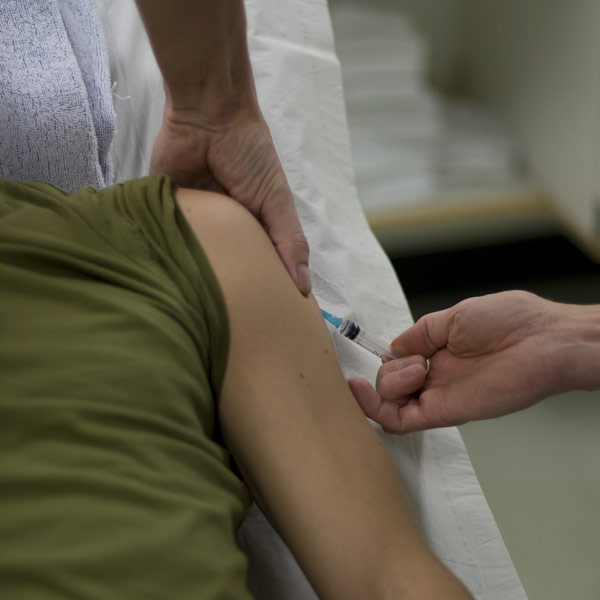
WEDNESDAY, Aug. 8 (HealthDay News) — A new vaccine developed by a team of researchers may protect people and livestock from the deadly Nipah virus.
The virus, upon which the Hollywood blockbuster Contagion was modeled, is found naturally in several species of fruit bats. Once infected, it causes serious respiratory distress syndrome and encephalitis. The researchers noted that in more than 75 percent of cases, those infected with Nipah die.
The researchers, led by Dr. Heinz Feldmann, chief of the Rocky Mountain Laboratories’ Laboratory of Virology, conducted their research on live Nipah virus in a high-security facility in Hamilton, Mont.
They found that immunizing African green monkeys with a vaccine based on the Hendra virus attachment G glycoprotein completely protected them against Nipah virus infection.
“There are currently no approved vaccines for prevention of infection and disease caused by Nipah and Hendra for use by people or livestock,” corresponding author Christopher Broder, a professor of microbiology at the Uniformed Services University in Bethesda, Md., said in a university news release. “This Hendra-sG vaccine has now been shown to be fully effective against infection by both Nipah and Hendra virus in at least three animal species, demonstrating its potential as a safe and effective vaccine, as a possible livestock vaccine and now also as possible vaccine for use in people.”
The U.S. National Institutes of Health and U.S. Centers for Disease Control and Prevention both classify the Nipah virus and the Hendra virus as biothreat agents.
The Hendra-sG vaccine is produced in the laboratory using molecular techniques, the study authors noted.
“Since the vaccine is only a recombinant piece of the virus, it can be produced by itself and purified. [It] is a type of vaccine known as a subunit, thus making it extremely safe to use,” study lead author Katharine Bossart, assistant professor in the department of microbiology at Boston University School of Medicine, said in a news release. Bossart developed the vaccine while at Uniformed Services University.
“This work now provides key evidence that a simple and safe recombinant vaccine against Nipah virus is possible,” study co-author Thomas Geisbert, professor in the department of microbiology and immunology at the University of Texas Medical Branch and the Galveston National Laboratory, said in the news release. “Demonstrating this in a nonhuman primate model is a major step forward in developing it for future therapeutic use in people.”
The findings were published online Aug. 8 in the journal Science Translational Medicine. Although the vaccine was successful in animal studies, results may be different in humans.
More information
The World Health Organization provides more information on Nipah virus.

